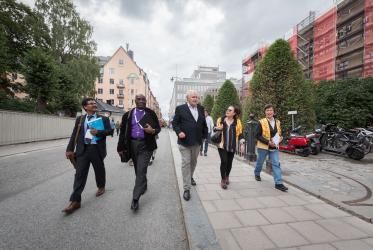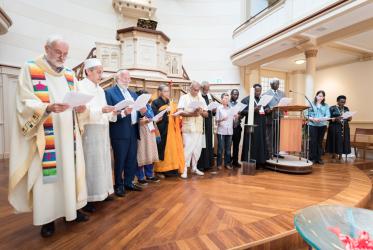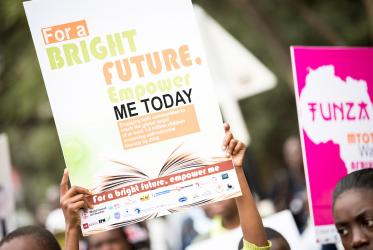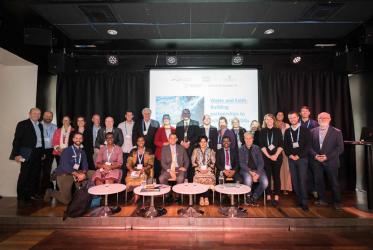Displaying 41 - 60 of 80
03 September 2018
Faith and Water: Translating words into action
30 August 2018
What difference does dressing in black make?
02 August 2018
WCC developing toolkit for health-promoting churches
02 August 2018
Working toward an AIDS-free generation
26 July 2018
Building bridges of faith in the HIV response
25 July 2018
Building Bridges in the global HIV response
25 July 2018
Emily Welty: tide of hope for a world free from nuclear weapons
19 September 2017
G7 must address famine
22 May 2017
WCC Blue Community implements water changes in the Ecumenical Centre
16 February 2017
Plans for 2017 decided by WCC Executive Committee
01 December 2016
















